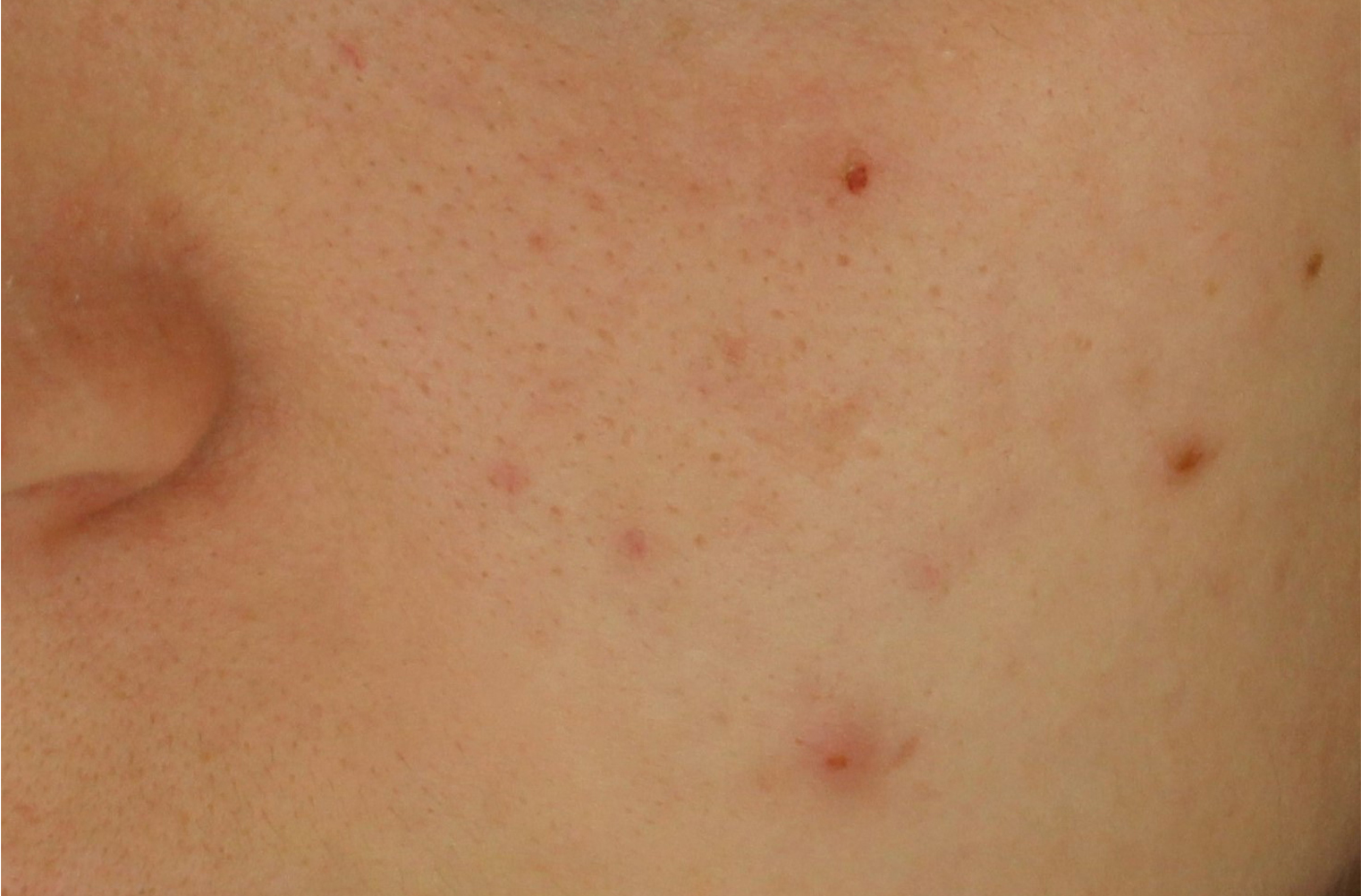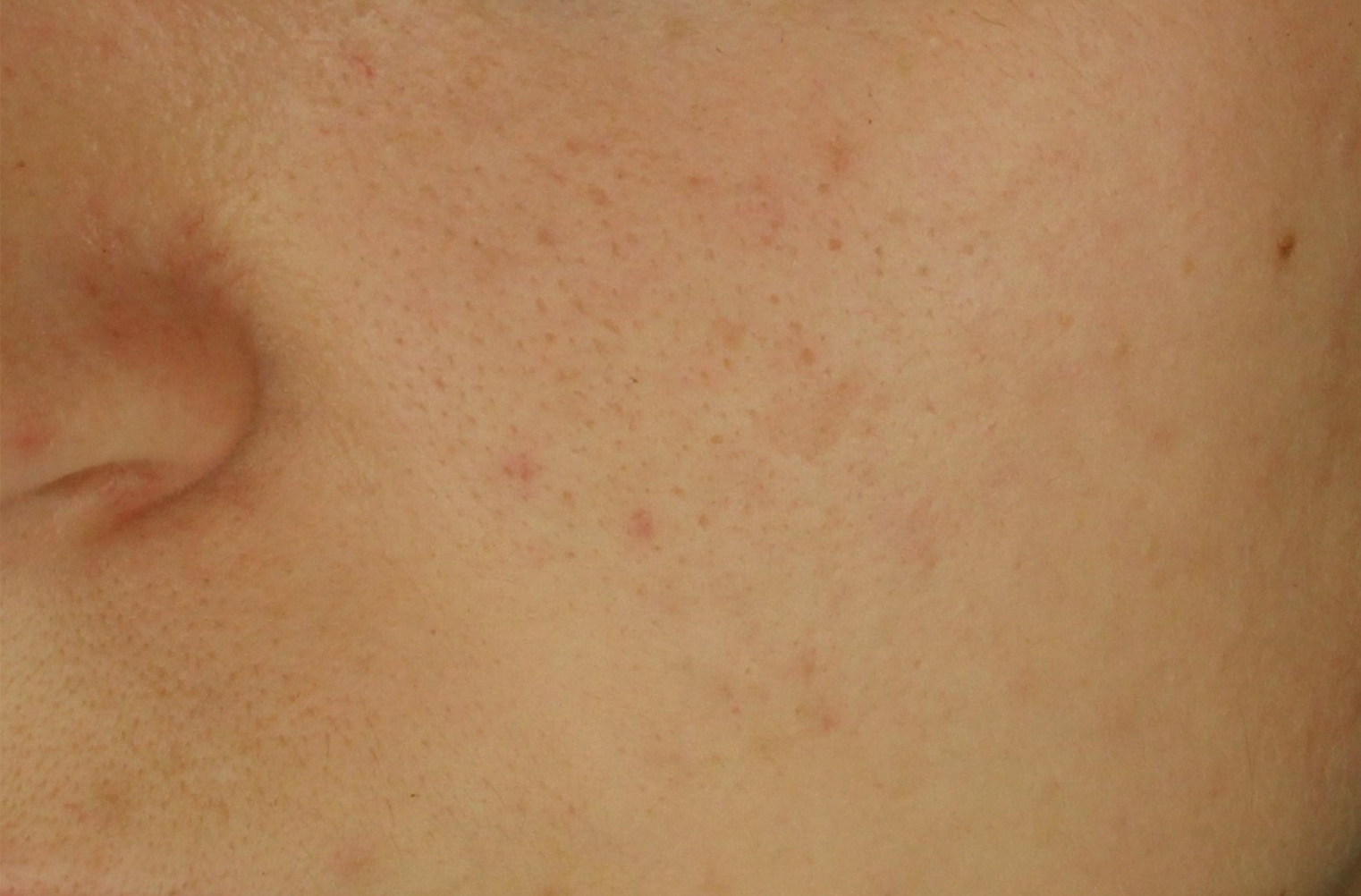Experts / Scientists
March 18th 2024
Zinc, an effective anti-blemish agent
Did you know? Zinc is a powerful ally for your skin. Not only does it provide a barrier against imperfections, it also protects you from environmental aggressors. What are the benefits of zinc for your skin, and how can you incorporate it into your daily beauty routine? We answer all these questions.

Zinc: the anti-blemish ally for your skin to include in your beauty routine
Thanks to its properties, zinc is a veritable shield for the skin, offering versatile protection against environmental factors.
- As an antioxidant, it defends the skin against oxidative stress and pollution, reducing the risk of premature aging.
- Its regulating action and anti-inflammatory properties help maintain an ideal sebum balance. It prevents your pores from clogging and prevents the onset of acne.
- Zinc also promotes accelerated healing, minimizing the appearance of scars and blemish marks. It improves skin texture and contributes to smoother, more even skin.
The skin benefits of zinc in detail
Zinc and acne
Zinc plays an essential role in skin health, thanks in particular to its anti-inflammatory properties and its ability to regulate sebum production. Specifically, zinc inhibits the activity of 5-alpha reductase, an enzyme involved in sebum synthesis, thus reducing the risk of clogged pores and pimple formation. It is therefore an invaluable aid for acne sufferers.
Wound healing
Zinc is a mineral that plays an important role in the wound-healing process, repairing and maintaining skin integrity, through a number of mechanisms. Zinc is an important cofactor for over 300 enzymes, including those involved in protein synthesis and cell division, processes vital to wound healing. It also helps in the formation of collagen, a major protein in connective tissue, accelerating the repair of damaged tissue.
Moisturizes and protects the skin barrier
As part of an effective anti-imperfection routine, zinc also plays a role in moisturizing and protecting the skin barrier. An essential trace element, zinc helps maintain skin integrity by promoting tissue repair and regulating sebum production. Choosing products containing zinc thus guarantees optimal hydration, without clogging your skin’s pores.
What’s more, zinc’s anti-inflammatory properties soothe the skin and reduce redness. It offers a major dual protective and reparative action, helping to preserve your skin’s barrier.
Preventing premature aging
In the fight against premature skin ageing, zinc can also have an impact in preventing the signs of ageing. By acting as a powerful antioxidant, it is able to neutralize the free radicals responsible for cellular aging. It also helps collagen synthesis, for firmer, more elastic skin. Thanks to its reparative properties, zinc helps reduce the appearance of fine lines and scars, for visibly younger, healthier skin.

myBlend and the benefits of zinc for the skin
As part of the myBlend range, Superserum Blemishes supports your beauty routine. Highly concentrated in reference molecules [1.9% salicylic acid + Imureline peptide + zinc gluconate], it helps fight imperfections (pimples, blackheads, acne…) and reduce excess sebum. These powerful purifying and soothing active ingredients help visibly reduce imperfections and regulate combination to oily skin.
Specific myBlend zinc action
The zinc gluconate selected for myBlend, and present in our zinc skincare products, is a pure molecule obtained through a biotechnological process. It is available as a salt (gluconate), which improves its stability in cosmetic formulations, but also guarantees its availability once on the skin.
The benefits of zinc: visible results
After 28 days of use, women report :
- 85% that their skin was purified (1) ;
- 85% that their skin texture was refined (1) ;
- 81% that their skin is matified (1) ;
- 83% that the product reduced excess sebum (1).
A clinical study also revealed a 33% reduction in blemishes (2).

Before

After 28 days
(1) Consumer test on 110 women over 28 days.
(2) Clinical study on 30 women, after 28 days of use.